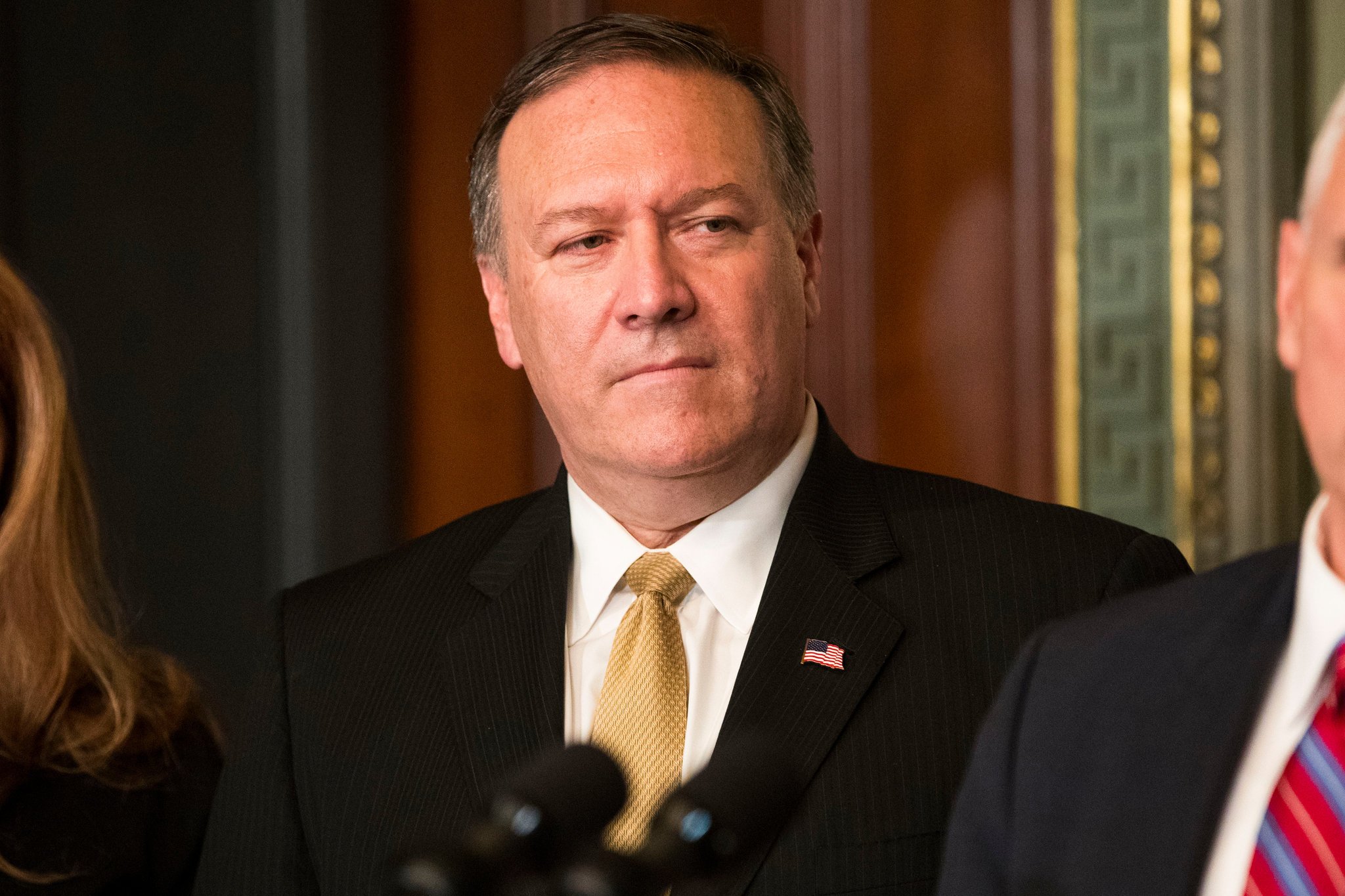
The C.I.A.’s first overseas detention site was in Thailand. It was run by Ms. Haspel, who oversaw the brutal interrogations of two detainees, Abu Zubaydah and Abd al-Rahim al-Nashiri.

Credit
Doug Mills/The New York Times
Mr. Zubaydah alone was waterboarded 83 times in a single month, had his head repeatedly slammed into walls and endured other harsh methods before interrogators decided he had no useful information to provide.
The sessions were videotaped and the recordings stored in a safe at the C.I.A. station in Thailand until 2005, when they were ordered destroyed. By then, Ms. Haspel was serving at C.I.A. headquarters, and it was her name that was on the cable carrying the destruction orders.
The agency maintains that the decision to destroy the recordings was made by Ms. Haspel’s boss at the time, Jose Rodriguez, who was the head of the C.I.A.’s clandestine service.
But years later, when the C.I.A. wanted to name Ms. Haspel to run clandestine operations, Senator Dianne Feinstein of California, then the senior Democrat on the Senate Intelligence Committee, blocked the promotion over Ms. Haspel’s role in the interrogation program and the destruction of the tapes.
On Thursday, critics of the C.I.A. questioned the choice of Ms. Haspel.
Mr. Pompeo “must explain to the American people how his promotion of someone allegedly involved in running a torture site squares with his own sworn promises to Congress that he will reject all forms of torture and abuse,” said Christopher Anders, the deputy director of the American Civil Liberties Union’s office in Washington.
The conflicting views of Ms. Haspel were clear in the reactions to her promotion on Thursday from members of Congress. Democrats expressed concern about how she would approach the issue of torture, while Republicans were fulsome in their praise.
Representative Devin Nunes, Republican of California and chairman of the House Intelligence Committee, said Ms. Haspel had “impressed us with her dedication, forthrightness, and her deep commitment to the intelligence community.”
Within the C.I.A., Ms. Haspel is similarly respected, and the agency’s announcement about her promotion came with a long list of testimonials from retired officials, much as prominent authors write blurbs for the back of other writers’ books. The list notably included prominent Obama administration officials, such as James R. Clapper Jr., the former director of national intelligence (“very pleased”), and Michael J. Morell, who twice served as the C.I.A.’s acting director (“I applaud the appointment”).
The praise for Ms. Haspel, despite her role in torturing detainees, reflects the agency’s ambivalent attitude toward those who participated in the interrogation program. The Bush administration declared the methods legal, and the view within the C.I.A. was that those who used the techniques were doing their jobs.
At the same time, many at the agency have little eagerness to see torture return. Where Ms. Haspel falls on the issue is not clear — as an undercover C.I.A. official, she was not offering public opinions on government policy — and neither she nor Mr. Pompeo could order agency personnel to resume the practice, because it is now against the law.
Mr. Pompeo’s decision to elevate Ms. Haspel is also likely to be seen by the C.I.A.’s rank-and-file as a vote of confidence in their work from their new director, despite Mr. Trump’s dismissal of the intelligence community throughout his campaign and in the months between his election and inauguration.
The open disdain with which Mr. Trump mocked the C.I.A., especially after intelligence agencies said they believed that Russia had tried to swing the election in his favor, had raised concerns at the agency of a repeat of the unhappy tenure of a former director, Porter J. Goss.
Mr. Goss took over the C.I.A. in 2004, when the agency was widely viewed as being at odds with the Bush administration over the Iraq war, and his marching orders were to end what the White House viewed as a campaign of leaks by insiders who opposed administration policies. He lasted only 13 months after his attempt to crack down on leaks drove many veterans out of the C.I.A.
An article on Friday about a new deputy director of the Central Intelligence Agency included a quotation that referred incorrectly to Gina Haspel, who was named to the post. She is not the first woman to serve in that position, as Representative Devin Nunes of California said. (Avril Haines was the first.)
Continue reading the main story
Powered by WPeMatico

